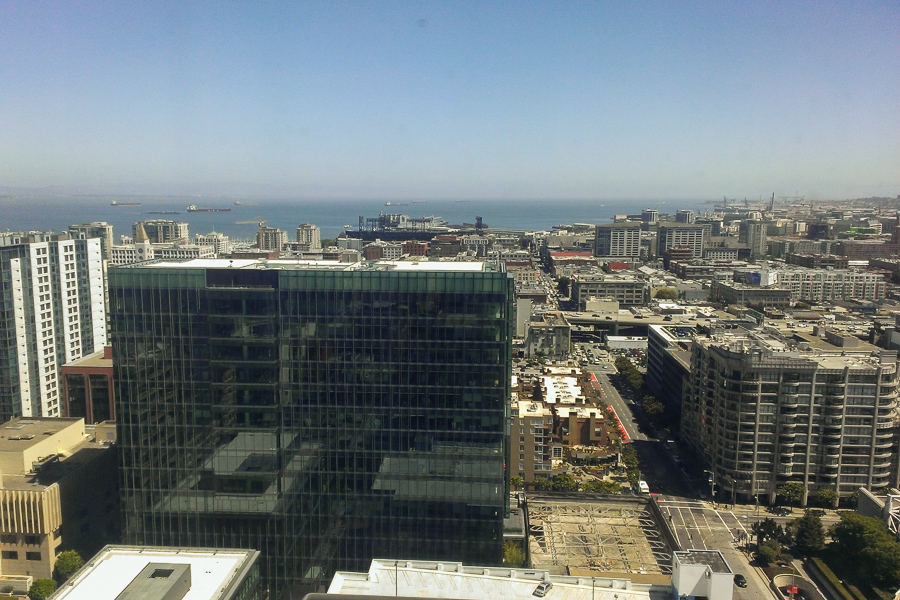Three unrelated passings this weekend:
- Chicago's NHL Blackhawks ended their season last night, losing 5-4 in overtime to the L.A. Kings. It's always nice when a Chicago sports team makes it to the post-season, and also disappointing when they don't make the finals. The Kings will play the New York Rangers for the Stanley Cup.
- Chicago-based HomeMade Pizza Co., started in 1997, abruptly ceased operations Friday, closing all their stores and online presence without notice. When the chain first started, it quickly became my mom's favorite take-out pizza. The company prepared raw pizzas that you would then bake at home, the idea being the pie would be hot and crispy when you ate it, because there would be no delivery time. Apparently that concept didn't scale to 40 stores in four states.
- Spain's King Juan Carlos has announced his abdication after 44 years on the throne. He's 76 years old and believes his 45-year-old son, Prince Felipe, will have the "impulso de renovación, de superación, de corregir errores y abrir camino a un futuro decididamente mejor" (motivation of renewal, of action, of correcting errors and making way for a decidedly better future). No word yet on whether HM Queen Elizabeth II, now on the throne 52 years and whose own son is scarcely much younger than Juan Carlos, plans ever to retire.
None of these is connected, as far as I know.
My dad just sent me this. His comment: "This was done by somebody who either has Asperger's or way, way too much
time on his hands."
Yah, but it's cool, right?
What is not so cool is that the Kings are up 4-3 with 17 left in the 3rd. If none of that makes any sense to you, clearly you don't care about hockey or Chicago sports.
It's the end of May, and the weather matches. I pushed some software into production this morning, which is already more productivity than necessary on a day like this.
Forget it. I'm going outside. See you in June.
Since the Cubs' 8-4 win over the Giants on Monday, they haven't gotten a run in 20 innings.
That may have something to do with them being the worst team in the MLB today. Yes, at 19-32, they're behind Arizona (23-33), Houston (23-32), and Tampa Bay (23-31), and 26 other teams.
Hully gee. Only 105 games left to play this year...
Crain's reported this morning that the Divvy bike-share program lost $150k on $2.2 million in revenue last year:
Though the operating loss is not unexpected, and the amount is relatively small, it comes at a time when Mr. Emanuel is under intense pressure to cut costs and avoid tax increases. The bicycle-sharing program has not yet reached many neighborhoods, reinforcing a view that Divvy is merely a toy for yuppies and tourists.
With the program expected to ramp up this year, achieving profitability is crucial to its long-term success. The administration expects Divvy to at least break even this year.
The program has proved popular with out-of-towners, but it must win over more price-sensitive customers, such as city residents.
So, the program seems on track, and the $12.5-million infusion from Blue Cross certainly hasn't hurt. I'm encouraged.
I appreciate my friends getting 5th-row seats at AT&T park tonight. And yet, the Cubs still lost.
So, voilà:

To clarify: I was legitimately surprised that my friends got such awesome seats. I was not surprised that, having won yesterday, the Cubs lost tonight.
I enjoy a healthy dose of randomness when traveling, because it means sometimes you get a hotel room with this view:

It's hard to see, but I'm looking directly at AT&T Park, where the Cubs are playing in about two hours. Since they won last night, I fully expect they've used up their allotted runs for the rest of May, but it will still be fun to see a baseball game.
A couple weeks ago I read a Snopes article about how Atari may have buried millions of E.T. game cartridges in New Mexico. After reading it, I found a copy of Zap! The rise and fall of Atari, on which much of the article was based.
The book was fascinating. Author Scott Cohen describes the meteoric rise of the company from Nolan Bushnell's Pong game until the company's self-inflicted and fatal shot to the head on 7 December 1982. Since Cohen wrote it in late 1983, the story ends a few months before the company did. But Atari had already been measured twice by that point, so no one reading the book when it came out would have any doubt about its prospects.
It always astounds me how companies keep making the same mistakes. Societies do too; but one can explain the timescale of human idiocy (usually 75-125 years) because people who would have known better tend to die eventually. Companies can flame out in just a few years.
Take Atari. In short, the company died because management—in particular CEO Ray Kassar—made a series of horrible decisions and ignored the lessons from their consequences. The initial growth and success of the company after Kassar took over was impressive, but it happened despite management, not because of it. The company's future sales required continuous development of new games, but management thought creating software wasn't any different than building cars.
At one point, four of Atari's top engineers, the guys creating the products Atari needed to sell, asked for commissions on the millions of game cartridges that people bought. In other words, they wanted recognition for their successes. Kassar responded, "You are no more important to that game than the guy on the assembly line who puts it together." The engineers quit and formed Activision, which then ate Atari's lunch.
With massive turnover in engineering, a game console that had not been upgraded in six years, over-saturation of the game cartridge market, poorly-reviewed products, and direct competition from technically superior products like personal computers, one would think management would notice the problem. Nope. On 7 December 1982, Atari announced disappointing earnings and precipitated the video game crash that left none of the original players standing.
The book concludes with a description of Silicon Valley as the new Detroit:
Silicon Valley is no longer the place for development and technology that it was. Now it's a meat market. What is happening to the Valley happened to Detroit, except there it was spread out over forty years. There are more companies in the Valley now than before, but it's not the hot spot it was. More companies are thinking about moving to the Midwest, since "cheap" labor down South is no longer cheap. Much of Silicon Valley will probably end up in Detroit, where all those auto workers are standing around with nothing to do.
So, not all of the book is accurate... It was a good read, though.
Another gratuitous ocean photo:

One of the best parts about visiting my folks:
